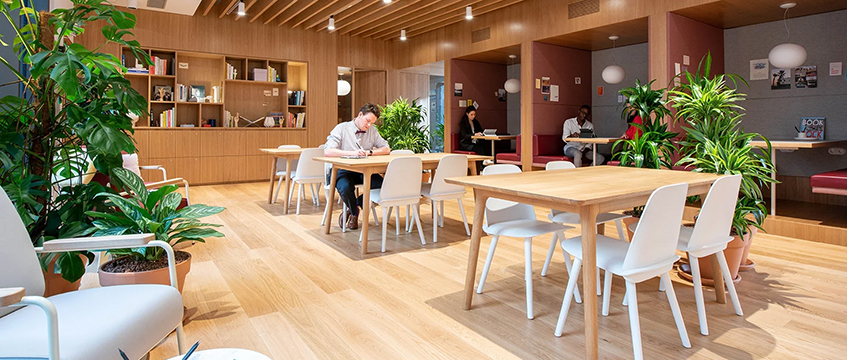Here are the most acquisitive flex office companies in London
The flexible office provider formed through the merger of Fora and The Office Group has emerged as the most acquisitive co-working company in London.
A new research note from Cushman & Wakefield said the two companies and the merged entity have leased more than 500,000 sq ft since 2021, taking its total portfolio to 2.3m sq ft. The Blackstone-backed company is reportedly likely to change hands in the coming year.
Orega, in second place, and Runway East, in sixth, have also boosted activity notably, with space acquired through leases and management agreements over the past three years higher than before the Covid-19 pandemic.
The flexible office provider formed through the merger of Fora and The Office Group has emerged as the most acquisitive co-working company in London.
A new research note from Cushman & Wakefield said the two companies and the merged entity have leased more than 500,000 sq ft since 2021, taking its total portfolio to 2.3m sq ft. The Blackstone-backed company is reportedly likely to change hands in the coming year.
Orega, in second place, and Runway East, in sixth, have also boosted activity notably, with space acquired through leases and management agreements over the past three years higher than before the Covid-19 pandemic.
Orega has acquired close to 250,000 sq ft of management agreements over the past decade, 70% of which were in 2023 alone. Runway East has acquired over 150,000 sq ft, more than half of which has been in the last three years.
IWG, with owns brands including Regus and Spaces, is in third place for take-up over the past three years, taking more than 150,000 sq ft. Last year, the company took two sites in the West End totalling 130,000 sq ft, including a 73,000 sq ft prelet at Kensington Olympia.
The main providers of flexible workspace in London since 2021
Source: Cushman & Wakefield
Cushman authors Heena Gadhavi, Kiran Patel and Amy Taylor said “new and exciting” operators such as Cubo, X+Why and Clockwise are now branching out from London into the regions, pointing to X+Why’s Eighteen members club at 103 Colmore Row in Birmingham.
“The quality of offer being put forward by these providers – particularly in the context of the modern city centre office market that is increasingly focusing on high-amenity, top-quality assets – is changing the perception of the sector held by developers and landlords,” Cushman’s report said.
“This means that while flexible workspace may have formerly been accepted into the last space of a stacking plan, they are now often sought out before any other tenants – for those landlords looking to provide the best quality offer. This ensures that prospective companies know they have the option to expand into the flexible workspace if needed, as well as potentially benefiting from the wider offer that these companies can provide.”
The Cushman team said another UK flex boom identical to 2017-2019 was “unlikely, given it was largely spearheaded by WeWork’s aggressive acquisition strategy”, but added that “a different kind of boom could be on the horizon”.
“We believe the focus for growth will be centred around providing best-in-class workspaces, beyond what we have seen over the last decade,” the note said. “In the new era, many businesses remain unsure of their future office requirements, and flexible workspace solutions will be an important consideration in their real estate decisions. They may choose to utilise the space for overflow and hybrid working demands; while businesses trialling HQ relocations can reap the benefits of multi-site access and amenity-rich workspaces. The mix of these factors is driving increased requirement and longer contract terms.”











